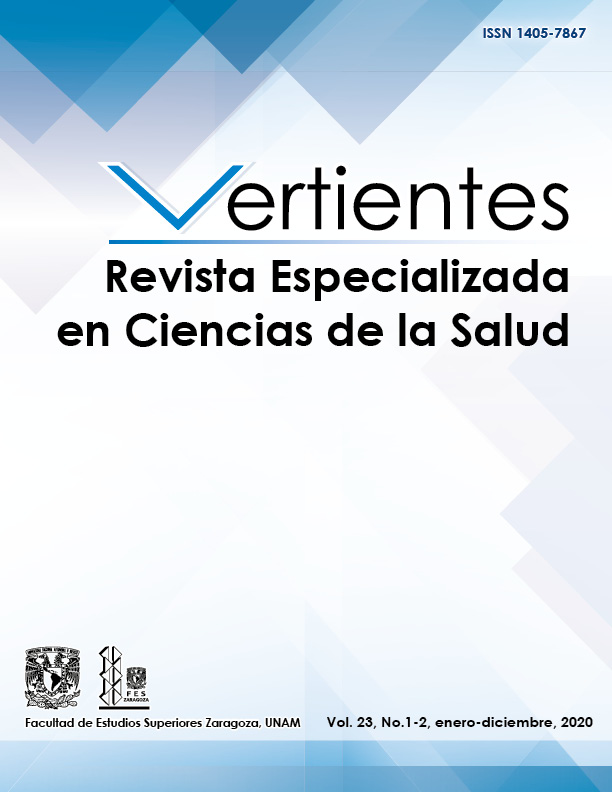Effect of perceived overall self-efficacy on the use of transversal competences in undergraduate health care area students
Main Article Content
Abstract
The aim of this research was to determine the effect of perceived levels of general self-efficacy in the use of transversal competencies, such as problem solving, decision-making, interpersonal communication and teamwork in undergraduate students of the bachelor degree programs in health care at FES Zaragoza, UNAM. It is a cross-sectional, correlational, non-experimental study. A total sample of 503 students selected on a non-probabilistic and convenience basis participated in the study. The General Self-Efficacy Scale and the Transversal Competence Evaluation Scale were applied. The results indicate that there is a directly proportional correlation of 0.488. On the other hand, variance analysis defined by self-efficacy and its levels (low, medium and high) shows a significant effect on the use of competencies with a Sig = 0.000<0.05 which allows to conclude that self-efficacy is a psychological variable that influences the use of competencies.
Article Details
How to Cite
Cervantes González, A., Ramos del Río, B., Rincón Salazar, S., & Figueroa López, C. G. (2021). Effect of perceived overall self-efficacy on the use of transversal competences in undergraduate health care area students. Vertientes. Revista Especializada En Ciencias De La Salud, 23(1-2), 13–21. Retrieved from https://journals.unam.mx/index.php/vertientes/article/view/81031
Citas en Dimensions Service

Vertientes by Universidad Nacional Autónoma de México is licensed under a Creative Commons Reconocimiento-NoComercial-SinObraDerivada 4.0 Internacional License.
Creado a partir de la obra en http://www.zaragoza.unam.mx.

